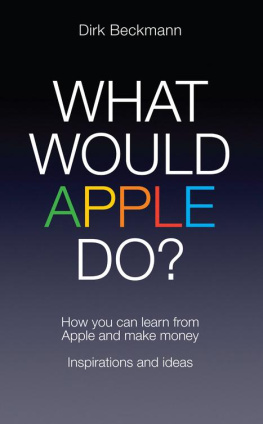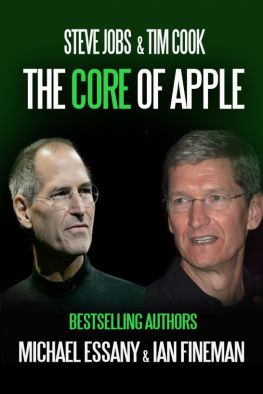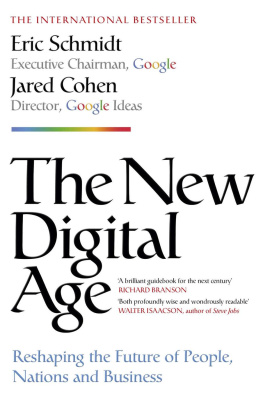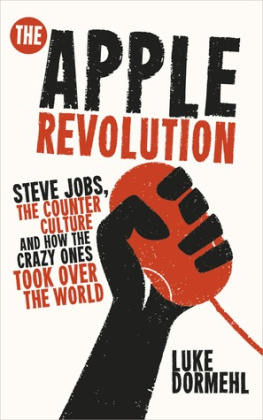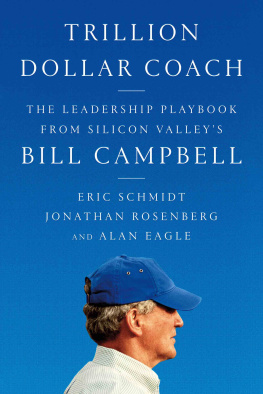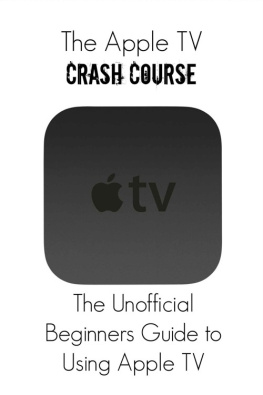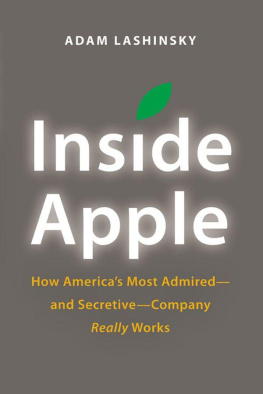
The author and publisher have provided this e-book to you for your personal use only. You may not make this e-book publicly available in any way. Copyright infringement is against the law. If you believe the copy of this e-book you are reading infringes on the authors copyright, please notify the publisher at: us.macmillanusa.com/piracy.
*Please note that some of the links referenced in this work are no longer active.
For Evelyn, Sam, and Beatrice
Contents
Introduction
When Steve Jobs stood before the world at the beginning of 2007 and said he was going to reinvent the cell phone, the expectations were modestat best. Jobs had upended the music business with the iPod and iTunes. But taking on the cell phone industry? That seemed unlikely. The wireless carriers, who controlled the market, had been foiling cell phone innovators for years. And the iPhone, while cool looking, seemed no match for their iron grip on the industry. It was more expensive than most phones out there. And it was arguably less capable. It ran on a slower cell/data network. And it required users to type on a virtual, not a physical, keyboard. To some critics, that meant the iPhone was dead on arrival.
If anything, Jobs undersold the iPhone that day. It truly was a breakthrough. The iPhone wasnt really a phone, but the first mainstream pocket computer that made calls. With its touchscreen, it did so many things that other phones could never do that consumers overlooked its shortcomings. Consumers got used to the virtual keyboard, and Apple continued to make it better and better. It cut the price to equal that of other phones. It quickly upgraded the slower cell/data radios to make its technology competitive. It developed displays with unheard-of resolutions. It bought a chip design company to make sure the iPhone was always the fastest device out there. It rolled out a completely new version of the iPhone software every year. And it designed iconic television adsas it had done for the iPodthat made consumers feel special about owning one.
The subsequent frenzy of demand gave Apple and Jobs the leverage to turn the tables on the wireless carriers and start telling them what to do. More important, it ignited a technology revolution that today touches almost every corner of civilization. The iPhone has become one of the most popular cell phones of all time, selling more than 135 million units in 2012 alone. It has become the platform for a new and hugely profitable software industryphone appsthat has generated more than $10 billion in total revenues since starting five years ago, in 2008. And the iPhone has become the source of an entire rethink of how humans interact with machineswith their fingers instead of buttons or a mouse. The iPhone and its progenythe iPod Touch and the iPadhavent just changed the way the world thinks about cell phones, they have changed the way the world thinks about computers for the first time in a generation, arguably since the advent of the Macintosh in 1984.
Since 2010, when Jobs followed the iPhone with the iPad, the questioning has grown frenzied. Who said our computer had to sit under our desk or on our lap? Cant it just be a screen that fits in our pocket or purse, or something we leave lying around the house? Indeed, if you compare iPad sales to sales of desktops and laptops, Apple is now the largest PC maker in the world. It now sells more iPads per quarter than Dell or HP sells laptops and desktops. Apples total sales of iPhones, iPads, and iPod Touches now exceed 200 million devices a year. Thats about the same number of TVs sold by all manufacturers every year and about four times the number of cars sold worldwide. All of this has turned Apple, the corporation, into a colossus larger than even Jobss enormous ambitions. Once on the precipice of bankruptcy, in 1997, Apple today is one of the most valuable and profitable companies anywhere.
And yet Apple behaves like a corporation under siegebecause despite all this success, it is. From the moment in late 2007 that Google unveiled Androidand its own plan to dominate the world of mobile phones and other mobile devicesGoogle hasnt just tried to compete with the iPhone, it has succeeded in competing with the iPhone. Android took hold in 2010, and it has exploded in popularity since. To Apples astonishment, there are now more smartphones and tablets running Android software than there are iPhones, iPads, and iPod Touches running Apples software, known as iOS. In 2012 there was even debate about whether the iPhone was the most popular smartphone anymore. During the third quarter of 2012, some surveys said, Samsung sold more Android-powered Galaxys than Apple sold iPhones.
Apple ended the who has the most popular smartphone discussion at the end of 2012, when it unveiled the iPhone 5. But more and more wonder whether this is even relevant anymore. The differences between the two platforms are narrowing by the day. Sure, they are different structurally. Apple makes every inch of the iPhonethe hardware and the software (though the devices are assembled in China). Google just makes the software for Android phones. It allows phone manufacturers such as Samsung to make the hardware. But both platforms now have an equivalent number of pluses and minuses: Apples platform is a little easier to use, but it only offers three productsthe iPhone, the iPad, and the iPod Touch. Googles platform offers many more phone choices, and often has the latest phone features ahead of Apple, but it lacks the polish of Apples interface. Still, both platforms are now equally available among large carriers worldwide, and, with the exception of Apple stores, they are available for purchase in the same places.
Seeing Apples market dominance challenged so swiftly and broadly was uniquely painful for Jobs and remains that way for the companys other executives. Jobs thought, and Apple executives still think, that Google and the Android community cheated to create their success. They think that Google executives stole Apples software to build Android, and that Androids largest phone maker, Samsung, copied Apples designs to build its supersuccessful Galaxy phones. They feel betrayed. Apple and Google werent just business partners when the iPhone was unveiled in early 2007. They were spiritual alliesthe yin and yang of the technology revolution. This was one of the closest alliances in American business. Apple made great devices. Google made great software. Googles founders considered Jobs to be a mentor. Googles then CEO, Eric Schmidt, sat on Apples board of directors. They had a common enemy: Microsoft. Together they planned for a long and prosperous marriage.
Then, as can happen in a marriage, the relationship frayed. Secrets were kept. Promises were broken. And the two went to war. When Jobs died in October 2011, there was hope that the dogfight would feel less like personal betrayal and quiet downthat Apples new CEO, Tim Cook, would take the emotion out of the battle and find a way to settle it. But if anything, Apple has gotten more aggressive and nasty toward Google since then. It still has dozens of patent lawsuits in at least seven countries pending against the Android communitymostly against Samsung and Motorola (owned by Google). In the summer of 2012, it took the unheard-of step of having its fight with Samsung, Googles top distributor of Android phones, tried in front of a jury in San Jose. It won a $1 billion judgment, though that is being appealed. In September 2012 Apple stopped selling the iPhone preloaded with Google Maps. It replaced the app with one of its own, despite wide consumer complaints that the app was inferior. Apple is believed to be working on a video service to compete with YouTube, which Google owns.
Next page

